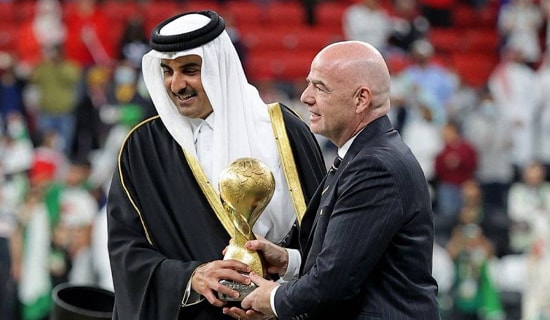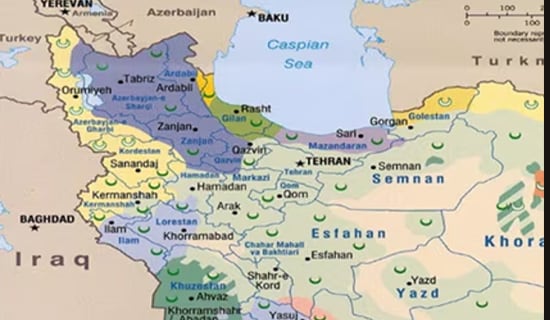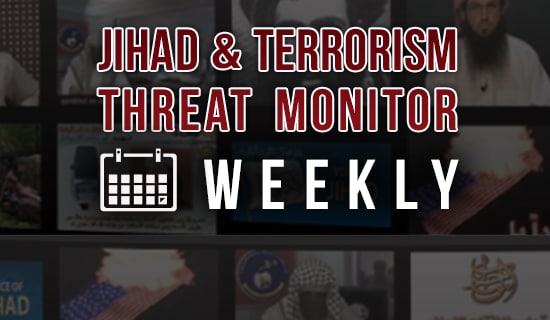Three weeks ago, MEMRI published an article by military analyst Viktor Biryukov complaining that unless Russia fully mobilized and put its army on a war footing, it was inviting a World War I type stalemate.[1] In a subsequent piece, Biryukov writes that a World War I war of attrition between Russia and Ukraine that he considered a disaster for Russia, was actually the undeclared policy of the Russian leadership. The leadership refuses to set understandable military goals such as the reunification of the Russian speaking lands that will rally the country behind the war effort. Instead, the half-hearted effort continues justified by the belief that Ukraine cannot sustain the casualty rate, and the Western supporters of Ukraine will soon tire of supporting Kyiv. These are the very same people, who have claimed since 2014 that Ukraine would be a pushover. Russia therefore needs an alternative plan.
Biryukov's article follows below:[2]

(Image: Mind.ua)
"Very often, the patriotically-minded public and bloggers voice demand of Russia's political leadership to begin to operating at full force and switch decisive action. This is especially often heard when the ZSU is once again launching missile attacks on Russian territory. But what is meant by 'decisive action' and 'full force'?
"In one of my previous articles 'When Will Russia Start Fighting for Real' I noted that in a special military operation [hereafter – the SVO] the Russian Armed Forces are actually fighting to the limits of their capacities, and intensification [of the SVO] can only come as a result of declared mobilization, imposition of martial law and from putting some industry on a war footing. Why is it not happening?
"Well, clearly, because such steps would no longer fit within the SVO framework and would conflict with the actual plan for a military operation in Ukraine. What is that plan? That is the question we’ll try to answer.
"On A Lack Of Understanding For The Operation's Purpose
"Officially, the de-militarization and de-Nazification of Ukraine, as well as the protection of Donbass were named as the goals of the SVO. While the protection and liberation of Donbas is clear, with reference to the abstract terms 'de-militarization' and 'de-Nazification' the situation is quite different. How exactly are these two goals supposed to be carried out?
"If under de-militarization, apparently, a reduction of the ZSU's military potential can be assumed (this is still a rather vague concept), what is meant by the term 'de-Nazification'? But it is not just the vagueness of these terms that creates problems. After 6 months of the SVO, it’s evident that none of these goals can be achieved with the available forces, because it is impossible to defeat the ZSU.
"An information war is won by the side, which is able to provide a more or less comprehensible image of the future to the mass consciousness. While Ukraine talks about how Kyiv will join the EU and become part of the collective West, how living standards will rise, etc., the liberated territories talk about how we will drive out the Banderites [i.e., supporters of an independent Ukraine] and Nazis and start celebrating 9th of May again. Well, who looks more convincing?
"Why is everything so vague and wishy-washy? Why, instead of the aforementioned fuzzy goals, why not announce, for example, a Russian irredenta, i.e. the reunification of Russians under a one state? Why there is no coherent state ideology? Well, because all this is not part of the SVO plans in Ukraine. The SVO does not, in principle, prescribe for the total elimination of Ukraine as a state. But then what are these plans?
"What Is The Real SVO Plan?
"The original SVO plan, as has been reiterated, envisaged a short-term operation with minimal casualties, which would have resulted in a change of power in Ukraine. Instead of Zelenskyy's team, power would be temporarily transferred into the hands of the pro-Russian Viktor Medvedchuk and former Ukrainian politicians like [separatist leader] Oleg Tsarev.
"It was expected that local administrations would eagerly go over to the Russia side, and for that reason the Russian military was instructed only to return fire during the operation's initial phase. This plan was based on faulty assessments of the operational environment and eventually led to a number of tragedies, such as the death of a Russian special forces unit in Kharkiv on 27 February.
"At the start of the operation, many politicians, journalists and bloggers alike were confident that Kyiv would fall within days. On 25 February, Duma Speaker Vyacheslav Volodin wrote in his Telegram channel, citing US media, 'Yesterday, the US media published a forecast made by Washington that Kyiv would fall within 96 hours. The 24 hours have already passed. An inglorious end and a natural outcome to the political career of an actor, who never understood the difference between acting and actually taking responsibility for the lives of millions of people.'
"Later, the SVO plan was corrected to reflect the existing realities. The liberation of Donbass became the priority objective was, and conditions for a peace agreement were put forward to Ukraine.
"The essence of these settlement conditions was not officially made public, but back in June a publication appeared in the US 'National Interest' magazine with a plan for such an agreement. Among the points of the agreement published in the US magazine were: Ukraine’s recognition of the reunification of Crimea with Russia, Ukraine’s neutral status, reduction of Ukraine’s ground troops (demilitarization), withdrawal of Russian troops from Kherson and Zaporizhzhya oblasts (but not from Donbass) and the staging of a referendum in the LPR and DPR.
"Some points, such as 'provision of written guarantees that NATO will never expand eastward along Russia's borders, including Finland, on part of the US and NATO,' are already effectively unrealizable, as Finland has already signed an accession protocol to NATO (the protocol had not yet been signed at the time of publication of this article).
"The fact that Russia expects for Kyiv to agree to the provisions of the Russian [settlement] plan, the essence of which has not been identified, was repeatedly stated by Presidential Spokesman, Dmitriy Peskov. Just the other day he said that, 'Russia is ready for a peaceful settlement of the conflict, and our conditions are well known to the Ukrainian side. One way or another, they will be secured.'
"Some experts and analysts, in particular reserve FSB colonel Igor Strelkov, made repeated claims that the events in Ukraine resemble that of the First World War. The author of this text has also repeatedly made such comparisons, stressing that a prolonged military operation is dangerous. But the thing is that such a development of the situation is part of the current SVO plan.
"According to plan, sooner or later Ukraine, which is suffering great human and financial losses, as well as the Western 'partners' supporting it, who are also bearing considerable economic costs, won’t withstand this war of attrition and will agree to peace on Russian terms. The only thing left to do is to wait a little longer. Already now we can see articles appearing in some magazines claiming that 'the Ukrainian government won’t make it to winter.' These are the same publications that have been talking about how 'Ukraine will freeze and fall apart' since 2014.
"There is only one question: what will happen if the US, Britain and their allies, and the fully controlled Ukraine, which is supplied [with arms] by the collective West, do not agree to Russia’s terms? What if a compromise cannot be reached (and so far there is no indication that it can be reached)? Is there another plan for this case?"
[1] See MEMRI Special Dispatch No. 10115, Russian Military Analyst Biryukov: Unless Russia Mobilizes And Moves To A War Economy, The Fighting In Ukraine Is Headed For A WWI Stalemate, August 2, 2022.
[2] Topwar.ru, August 16, 2022.








